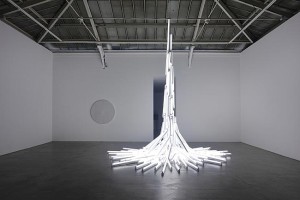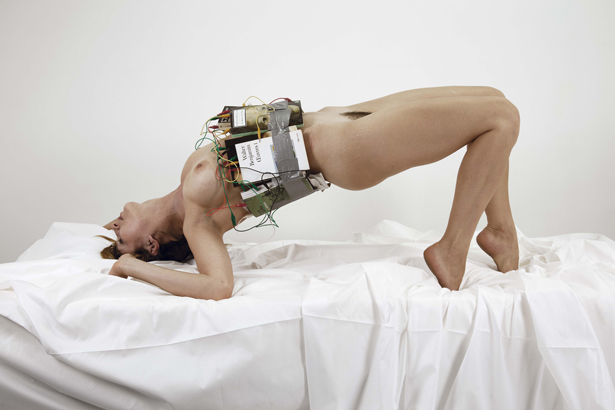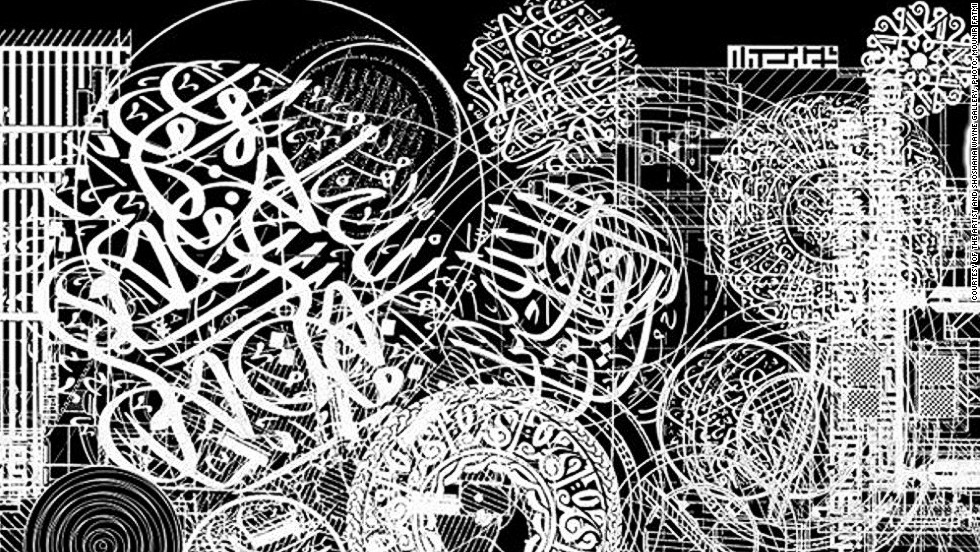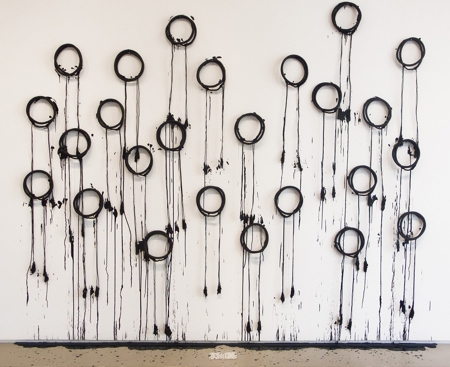
Mounir Fatmi: Born 1970, Tangier, Morocco, lives and works between Paris and Tangier.
They were blind they only saw images, 2014.
About:
mounir fatmi constructs visual spaces and linguistic games.His work deals with the desecration of religious object, deconstruction and the end of dogmas and ideologies. He is particularly interested in the idea of death of the subject of
Evolution or Death, 2014.
consumption. This can be applied to antenna cables, copier machines, VHS tapes, and a dead language or a political movement. His videos, installations, drawings, paintings and sculptures bring to light our doubts, fears and desires. They directly address the current events of our world, and speak to those whose lives are affected by specific events and reveals its structure. Mounir Fatmi’s work offers a look at the world from a different glance, refusing to be blinded by the conventions.
Modern Times, 2010.
mounir fatmi’s work has been shown in numerous solo exhibitions, in the Migros Museum für Gegenwarskunst, Zürich, Switzerland, at the Picasso Museum, war and peace, Vallauris, at the FRAC Alsace, Sélestat, at the Contemporary Art Center Le Parvis, at the Fondazione Collegio San Caro, Modena, at the AK Bank Foundation in Istambbul, and at the Museum Kunst Palast in Duesseldorf.
He participated in several collective shows at the Centre Georges Pompidou, Paris,The Brooklyn Museum, New York, N.B.K., Berlin, Mori Art Museum in Tokyo, Museum on the Seam, Jerusalem, Moscow Museum of Modern Art, Moscow, Mathaf Arab Museum of Modern Art, Doha, the Hayward Gallery, London, the Art Gallery of Western Australia, and Victoria & Albert Museum in London.
His installations have been selected in biennials such as the 52nd and 54th Venice Biennial, the 8th biennial of Sharjah, the 5th and 7th Dakar Biennial, the 2nd Seville Biennial, the 5th Gwangju Biennial and the 10th Lyon Biennial, the 5th Auckland Triennial and Fotofest 2014, Houston..
Oil Oil Oil Oil, 2012.
Mounir Fatmi was awarded by several prize such as the Cairo Biennial Prize in 2010, the Uriöt prize, Amsterdam and the Grand Prize Leopold Sedar Senghor of the 7th Dakar Biennial in 2006.
(courtesy Goodman Gallery Joburg)



